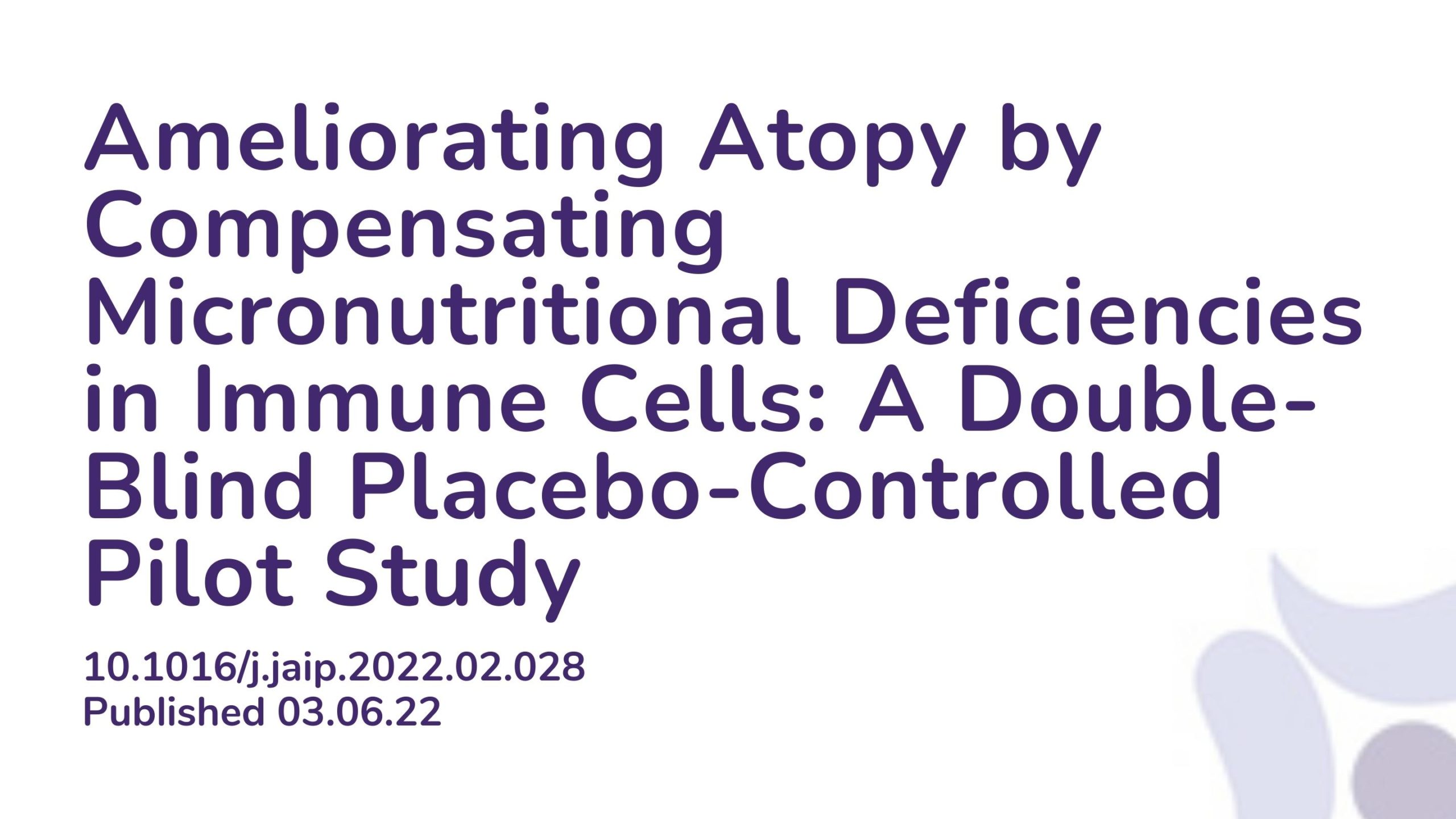Summary: Currently, antihistamine medications and specific allergen immunotherapy is thought to be the only option for alleviating symptoms of allergies. Given that micronutrient deficiencies such as iron are extremely common and known to promote allergic reactions, the authors of this paper have conducted a randomised controlled trial to assess whether targeted supplementation can reduce the severity of symptoms for those suffering from allergies. The results showed that administering supplementation in the form of lozenges containing iron, polyphenols, retinoic acid and zinc reduced the symptom burden in the 51 allergic women included in this study.
Abstract:
Background: Functional iron deficiency facilitates allergy development and amplifies the symptom burden in people experiencing allergies. Previously we selectively delivered micronutrients to immune cells with β-lactoglobulin as carrier (holoBLG), resulting in immune resilience and allergy prevention.
Objective: The clinical efficacy of a food for special medical purposes-lozenge containing β-lactoglobulin with iron, polyphenols, retinoic acid, and zinc (holoBLG lozenge) was assessed in allergic women.
Methods: In a randomized, double-blind, placebo-controlled pilot study, grass- and/or birch pollen-allergic women (n = 51) were given holoBLG or placebo lozenges over 6 months. Before and after dietary supplementation, participants were nasally challenged and the blood was analyzed for immune and iron parameters. Daily symptoms, medications, pollen concentrations, and well-being were recorded by an electronic health application.
Results: Total nasal symptom score after nasal provocations improved by 42% in the holoBLG group versus 13% in the placebo group. The combined symptom medication score during the birch peak and entire season as well as the entire grass pollen season improved in allergic subjects supplemented with the holoBLG lozenge by 45%, 31%, and 40%, respectively, compared with the placebo arm. Participants ingesting the holoBLG lozenge had improved iron status with increased hematocrit values, decreased red cell distribution width, and higher iron levels in circulating CD14+ cells compared with the placebo group.
Conclusions: Targeted micronutrition with the holoBLG lozenge seemed to be effective in elevating the labile iron levels in immune cells and reducing the symptom burden in allergic women in this pilot study. The underlying allergen-independent mechanism provides evidence that dietary nutritional supplementation of the immune system is one of the ways to combat atopy.
Article Publication Date: 03.06.22
DOI: 10.1016/j.jaip.2022.02.028



